Are you finding it challenging to gain access to your online classes? You're not alone, as many students encounter issues with logging in or navigating their virtual learning platforms. It's important to address these concerns promptly to ensure you don't fall behind in your studies. If you're looking for a clear and courteous way to request access, keep reading for a helpful letter template you can customize!
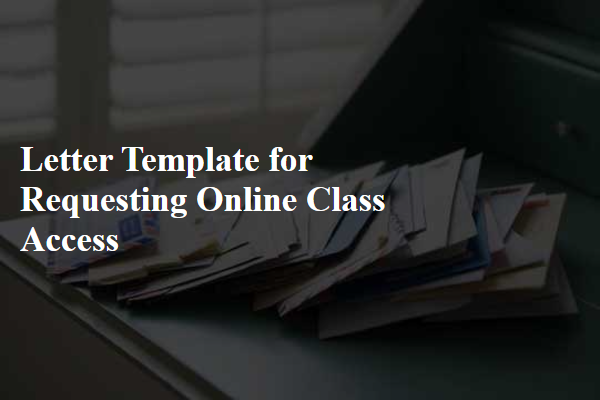
Clear subject line
Request for Online Class Access: [Course Name] - [Your Name] Access to online courses has become essential for academic progress. In light of the current circumstances, many institutions are shifting to digital platforms, particularly for educational programs such as the [Course Name] offered by [Institution Name]. This shift allows students to engage with material through platforms like Zoom or Google Classroom. Timely access to resources such as course syllabi, lecture recordings, and discussion forums is critical for maintaining academic performance. Ensuring compatibility with various devices (laptops, tablets, and smartphones) further enhances accessibility for all students. I am seeking assistance regarding my access to this online class as enrollment deadlines approach, ideally before the start date of [Specific Date] to remain aligned with my educational goals.
Greeting and introduction
A formal request for online class access typically begins with a respectful greeting followed by a brief introduction. The salutation is important, addressing the recipient appropriately, such as "Dear Professor Smith" or "Hello Dr. Johnson." Following the greeting, the sender introduces themselves, stating their full name, the course they are interested in, and their academic affiliation. For example, "My name is Jane Doe, a second-year undergraduate student majoring in Environmental Science at Green Valley University." This context establishes the sender's status and intention clearly to the recipient.
Specific request details
A request for online class access typically includes information such as the course name, educational institution name, term or semester, and the specific reason for requesting access. For instance, a student may need access to an advanced calculus course at Princeton University for the Fall 2023 semester due to scheduling conflicts. The request should highlight any pertinent details such as existing prerequisites, previous courses completed, or any challenges that prevent attendance in person. Additional context may include the importance of this course for fulfilling graduation requirements or enhancing understanding of complex mathematical concepts that are foundational for a career in engineering.
Reason for the request
Students often need access to online classes to facilitate their learning during periods of illness, travel, or personal commitments. Reasons for this request can include illness preventing physical attendance, family obligations, or the necessity to travel for other responsibilities. Educational institutions, such as universities and high schools, typically use platforms like Zoom or Google Classroom to deliver remote learning, making it crucial for students to remain engaged in their coursework. Flexible access to these digital resources ensures continuity in education and allows students to keep pace with their studies despite unforeseen circumstances.
Polite closing and contact information
Online class access requests typically require specific information. Ensure you include details such as class title, instructor (e.g., Dr. Sarah Johnson of the Mathematics Department), and intended participation dates (e.g., from October 1, 2023, to December 15, 2023). Modifying or personalizing a message might include addressing the administrative office or relevant coordinator to streamline processing. For inquiries, providing contact information should include a valid email address (e.g., student.email@university.edu) and phone number (e.g., (123) 456-7890). By clearly stating the purpose of access and offering your contact details, you facilitate timely communication and address any potential issues that may arise during the enrollment process.

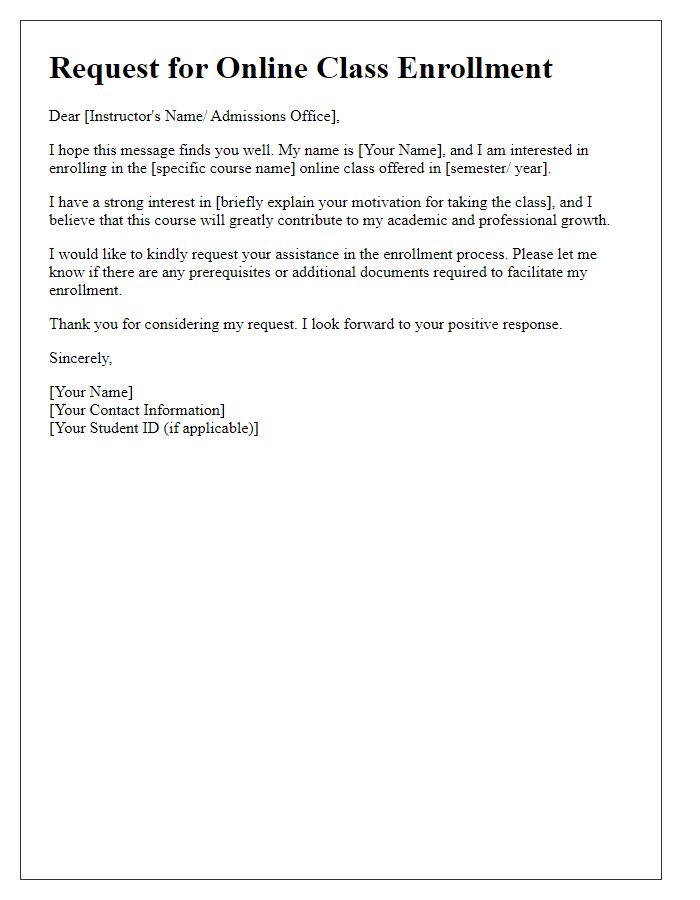
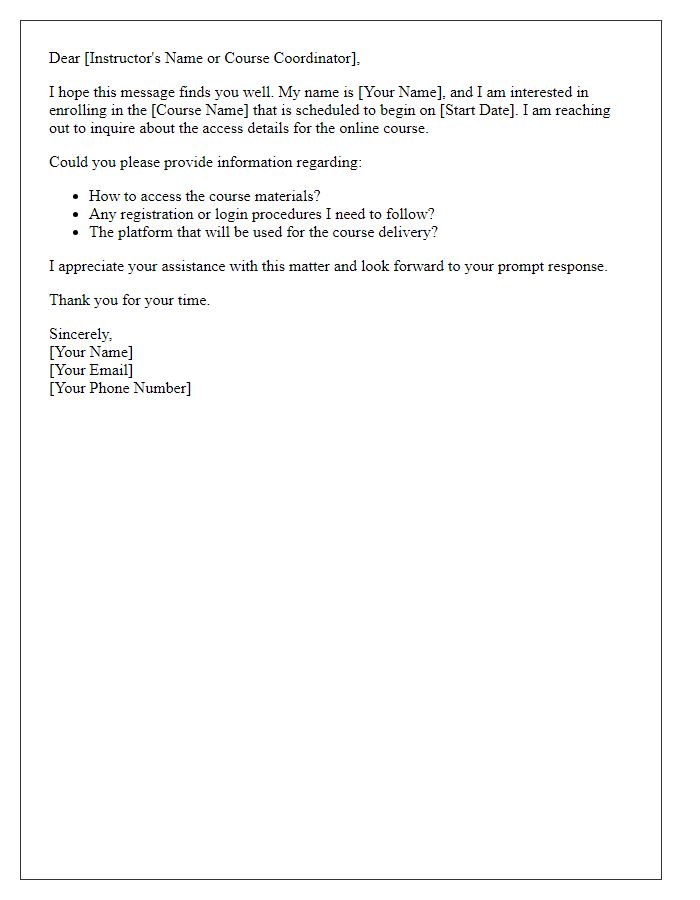
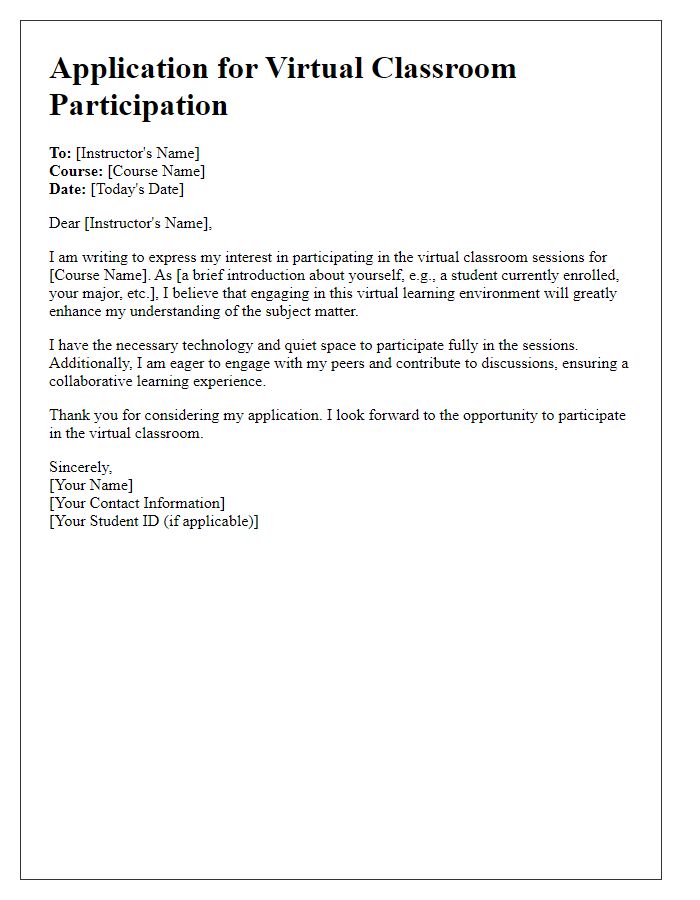
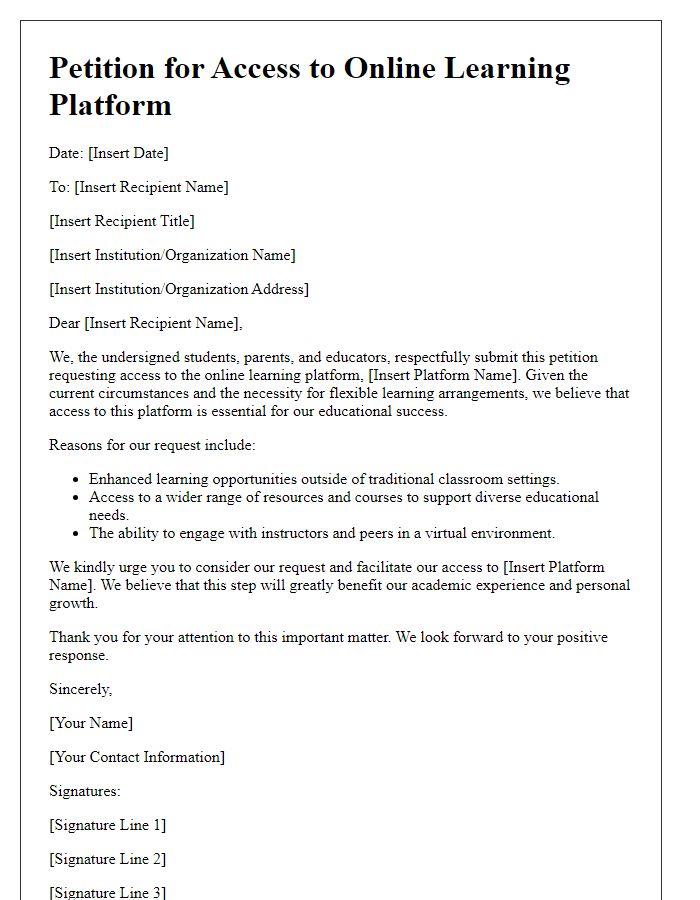
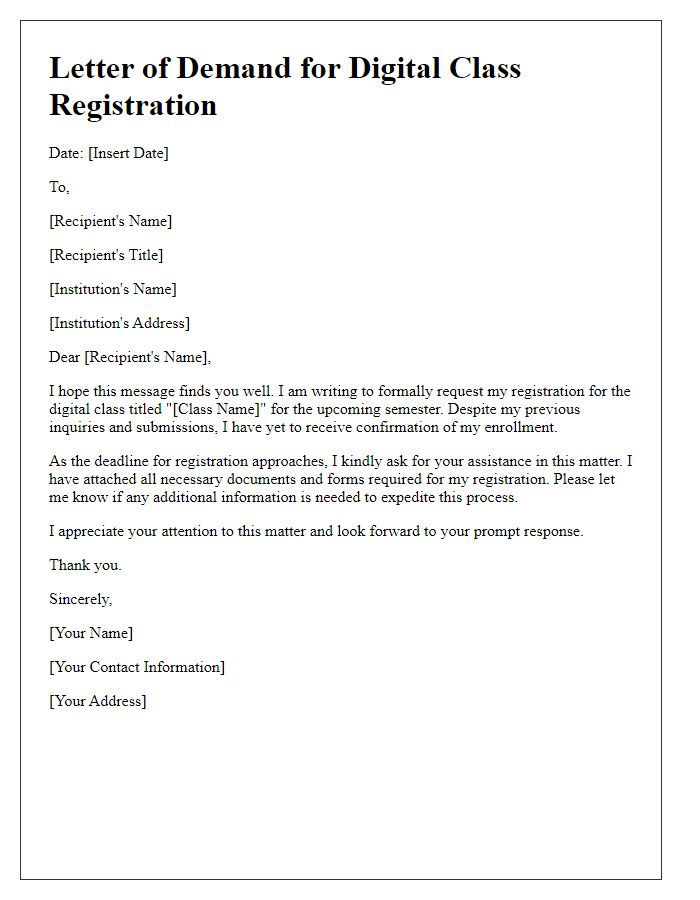
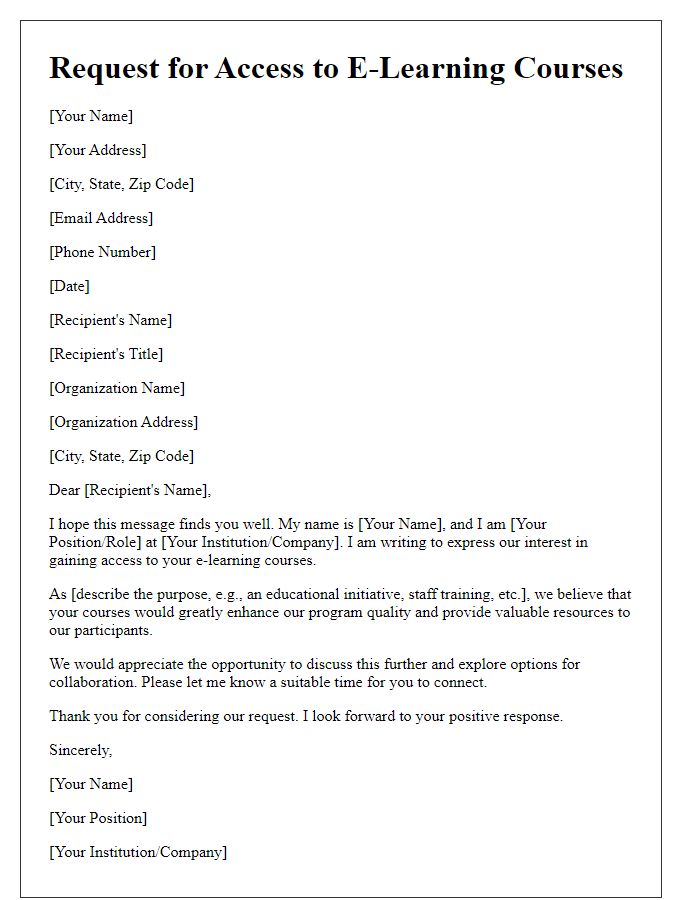
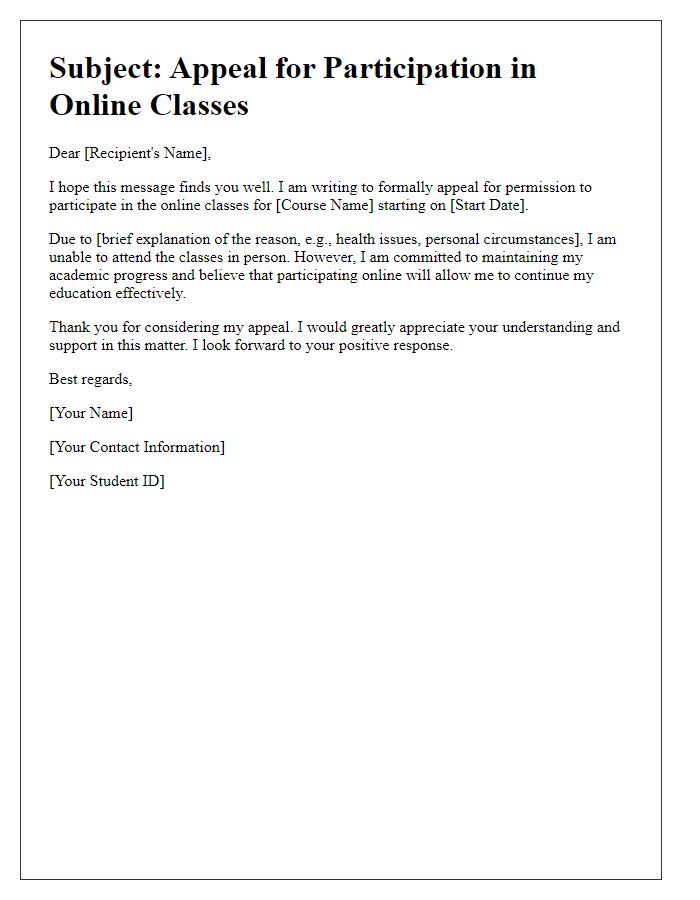
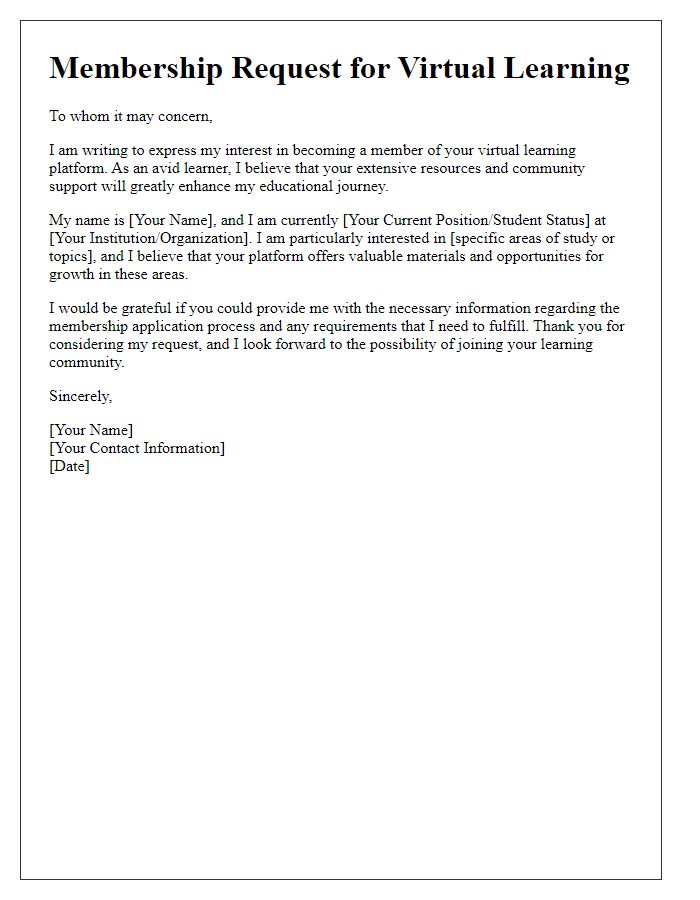
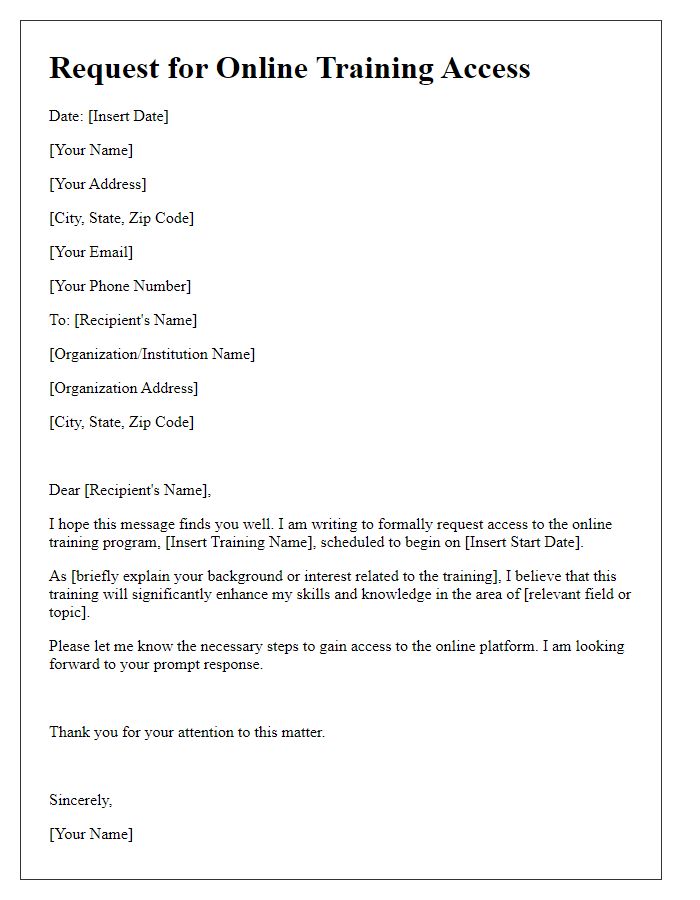
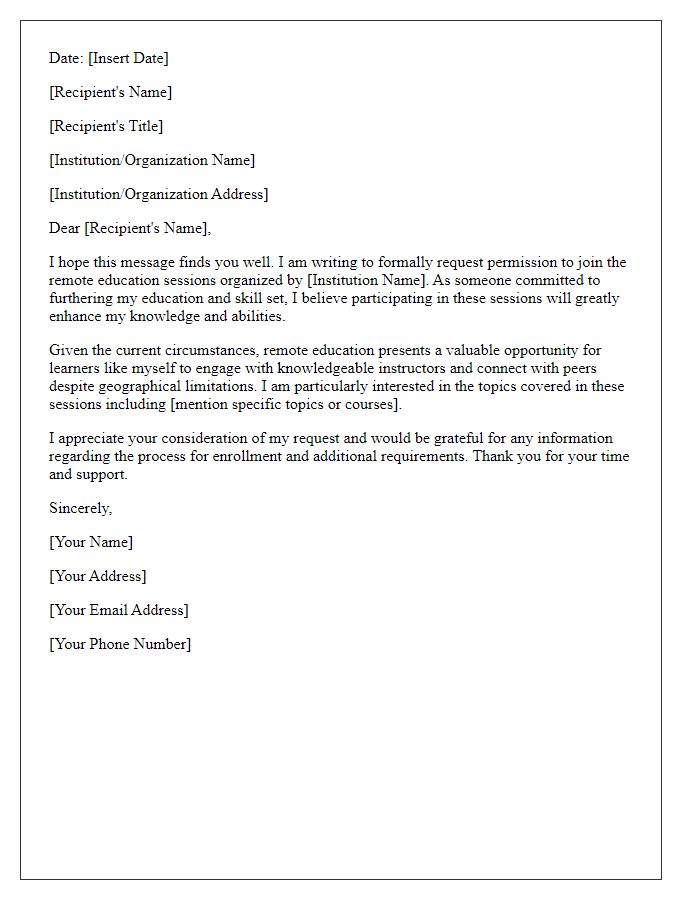


Comments